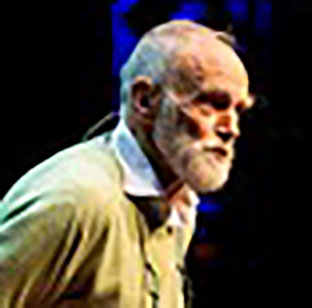Politics does not have to be adversarial. Peter Emerson FRSA, argues that, in this age of coronavirus and climate change, coalitions and consensus may be a prerequisite of our survival.
Now children, what’s for lunch? Broccoli? A majority says “Ugh”. Parsnips? Again, a majority says “No!” So neither broccoli, nor parsnips. When there is no majority for any one thing, there is a majority against every thing; a truism first noted 1900 years ago by Pliny the Younger. This is what happened with Brexit. Yes, a majority voted against remaining in the EU. But there was probably a (bigger) majority against each of the other options as well: Theresa May’s motion, Boris Johnson’s notion, Canada plus, the Norway model, the WTO and so on.
So what is democracy? Most obviously, the process of elections where voters are asked to vote ‘Candidate X, yes-or-no?’ – is inadequate; that’s what they have in the ‘Democratic’ People’s Republic of [North] Korea. A ‘Candidate X or Candidate Y?’ election is not much better: in 2016 in the US, the land of the free, folks were not free to vote for Bernie Sanders for example. It was (almost) just X or Y, Trump or Clinton.
Elections should be multi-candidate. And rather than a semi-Orwellian choice of ‘this one good, the others no good’, the Belgian, Irish and Swiss systems allow voters to support more than one candidate.
But on decision-making, in parliaments and referendums alike, most democracies work on the basis of a majority; majority voting plus binary majority rule, majoritarianism; (a corresponding Russian word is bolshevism. At best, some democracies have ‘X or Y?’ voting; at worst – it’s ‘Option X, yes-or-no?’ – just like in Pyongyang (although while we can say ‘yes’ or ‘no’, the North Koreans say only ‘yes’). Whichever, the majority wins, like little Bolsheviks. It need not be so. Democracy is for (almost) everybody, not just 50% plus one.
Just as there are lots of electoral systems in the world, so too there are several ways of identifying a majority opinion: the latter include plurality voting, two-round voting, the alternative vote and preferential voting. When changing their electoral system, two countries allowed for a multi-option debate – the better one was in 1992, in New Zealand, where an independent commission drafted a five-option referendum. The New Zealanders were allowed to cast only one preference but at least they had a choice.
Nine years ago, when Britain voted on our electoral system, we were given two options: first-past-the-post or the alternative vote. For those wanting proportional representation, it was like asking children whether they wanted broccoli or parsnips. In New Zealand citizens had been able to engage in a debate about the various options before they had their ballot. In stark contrast, when it came to Brexit, we only held our multi-option debate (or bloody great row) after the referendum.
But it does not have to be like this. For example, in a five-option debate, voters may cast up to five preferences. If, however, they cast only their first preference, they give their favourite only one point; if they cast two preferences, they give their favourite two points, and so on. The option with the most points wins. But nobody votes ‘no’. Nobody votes against anybody or anything. Indeed, if everyone casts more than a first preference, if everyone states their compromise option(s), we can identify the collective compromise. This methodology is called the Modified Borda Count.
By using this method in decision-making, MPs and/or voters could identify the option with the highest average preference; the superlative. And an average, of course, involves every voter, not just a majority of them. Instead then of allowing one individual – the likes of Trump, Bolsonaro, Johnson, Putin, Modi et al – to win the bigger ‘half’ and then dominate, every democracy could enjoy a preferential and proportional electoral system such as single transferable vote. Their parliaments could elect all-party, power-sharing governments of national unity, again by proportionate representation and, on topics of complexity and/or controversy, all concerned could use the Modified Borda Count decision-making.
Politics need not be adversarial, and with preferential decision-making as befits a pluralist democracy, terms like ‘majority rule’, ‘majority coalition’ and ‘majoritarianism’ can join ‘Bolshevik’ and ‘bolshevism’ in the history books.
Peter Emerson is the director of the de Borda Institute, an international NGO which promotes inclusive decision-making, not only in conflict zones like Northern Ireland and the Balkans, but also in (perhaps) emerging democracies like Russia and China. His latest work is Majority Voting as a Catalyst of Populism, 2019, (Springer, Heidelberg).

Be the first to write a comment
Comments
Please login to post a comment or reply
Don't have an account? Click here to register.